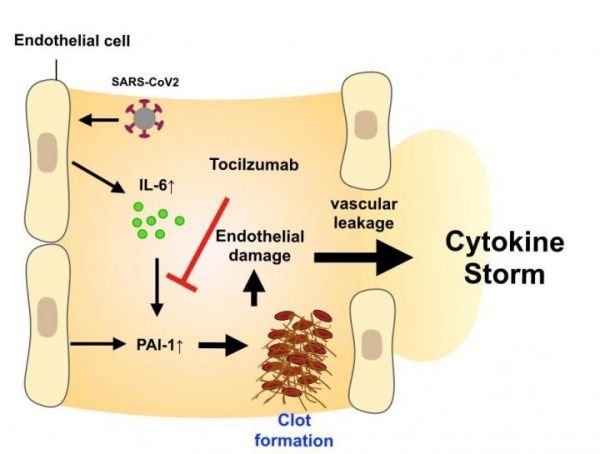As countries around the world race to develop a vaccine for SARS-CoV-2, the virus responsible for COVID-19, researchers are working to understand exactly how it causes the myriad of symptoms that seem to linger long after active viral infection. In a study published in scientific journal PNAS, researchers led by Osaka University identified an effective treatment for the deadly over-activation of the inflammatory response seen in many severe COVID-19 patients.
Cytokines are a group of small proteins that can either enhance or inhibit our body’s immune response to infection, trauma, and diseases such as cancer. One of their main roles is to stimulate inflammation, which initiates the healing process. The problem is, overstimulation of the inflammatory response has an array of harmful complications, ranging from asthma to severe autoimmune diseases. One such complication, called cytokine release syndrome (CRS), is seen in patients suffering a hyperimmune response to microbial infection or trauma and can lead to multiple organ failure and even death.
“Despite knowing which cytokines are involved, there is still no specific immunotherapy for CRS and treatment is limited to supportive care,” says study lead author Sujin Kang. “To better understand the molecular mechanisms of CRS pathogenesis, we first studied the cytokine profiles of 91 patients diagnosed with CRS associated with bacterial sepsis, acute respiratory distress syndrome, or burns.”
Read more at Osaka University
Image: IL-6 in blood promotes thrombus formation via PAI-1. By suppressing IL-6, Actemra® reduces the severity of pneumonia caused by the cytokine storm. (Credit: Osaka University)


